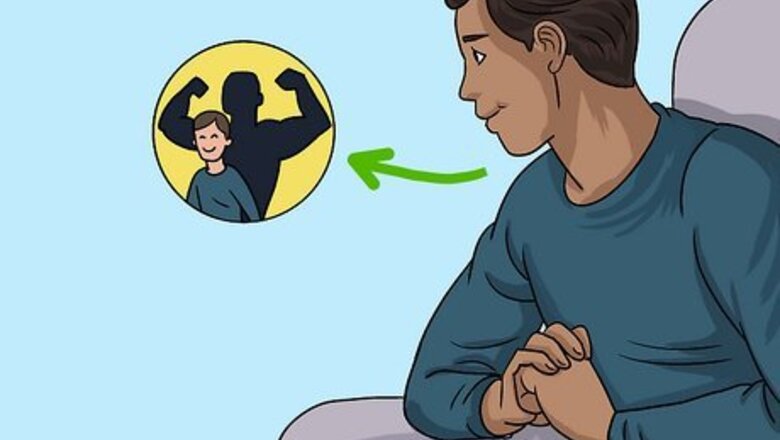
views
- Remind yourself of your strengths—what are you good at? What have you accomplished that you’re proud of?
- Take care of your body: eat nourishing food, hydrate, get plenty of sleep, and move your body regularly.
- Socialize with trusted friends and family, and consider getting involved in a club or volunteer program.
- Consider therapy if you’re struggling to feel better on your own. There’s no shame in seeking help.
Focus on your strengths.
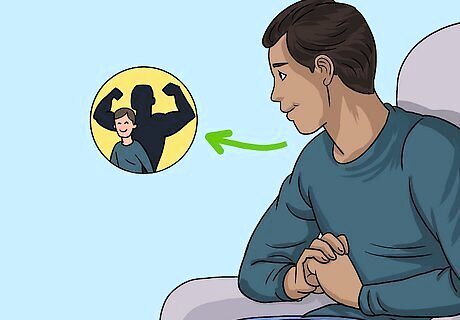
Taking note of your accomplishments will help you be more positive. Looking on the bright side of things is a helpful step in alleviating some of those feelings of inferiority. What are your strengths? What amazing things have you accomplished in your life? Reminding yourself that you’re capable of wonderful things is a great way to increase your self-esteem and lift your mood. Don't limit yourself to milestones like graduating or winning a Nobel Prize (but those certainly count too). Consider all the seemingly little things that add up to a meaningful life, like being a kind friend or taking good care of your cat.
Stop comparing yourself to others.
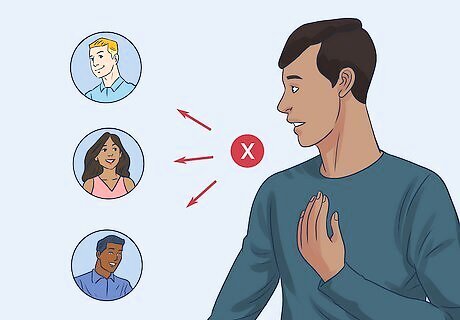
Comparison can make you feel worse about yourself. As Teddy Roosevelt said, "Comparison is the thief of joy." And it’s true: when you spend all your time comparing yourself against everyone around you, it’s easier to feel weak and like you haven’t accomplished enough in your life. Practice not comparing yourself to other people: learning how to feel appreciative and proud of everything you have and everything you’ve achieved without judging your life against the lives of others is a key step in feeling self-confident and strong. If you're feeling inferior in a relationship, it might be a sign that your needs are not being met. In order to stop feeling inferior in this case, try getting clear on what it is that you want and need, and communicate it really clearly before drawing some boundaries.
Practice mindfulness.
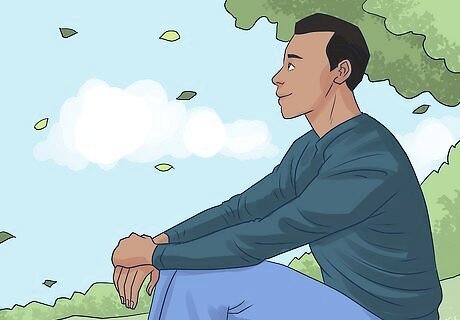
Mindfulness can help you cultivate joy and gratitude. Mindfulness involves maintaining a present awareness of your thoughts, feelings, and sensations—sans judgment. Simply sitting with the world and with yourself can help you accept life as it is, not as you wish it was. Accepting reality as it is can in turn help you appreciate your life more, which will make you feel stronger and more confident. Mindfulness is a tough skill to master, so don’t feel discouraged if you struggle with racing or self-judgmental thoughts the first few times (or the first hundred times)! If you find your mind wandering, simply recognize it’s wandering, call it back to the present, and try anew.
Manage your expectations.

Holding yourself to unrealistic standards can make you feel discouraged. You might be putting too much pressure on yourself, and that can give you crippling anxiety. Realize that nobody is perfect, including you, and adjust your expectations for yourself accordingly. This will help you feel lighter, happier, and less down on yourself. Aim to be impactful rather than perfect. Focus on making your goals reachable and achievable, as this can help you stay confident and positive. Maybe you think you “should” be at a certain place in life by now. Says who? You’re right where you need to be. It’s not a race. Is it possible you’re biting off more than you can chew? Trying to tackle too many things at once is a surefire way to make us feel inadequate!
Go easy on yourself.
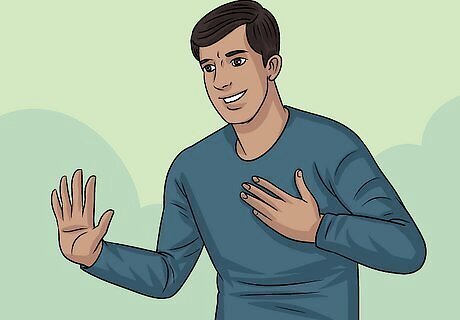
Remember, whether you succeed or fail, you have value. Beating yourself up for not achieving a certain goal will contribute to your feelings of inferiority and weakness. But messing up doesn’t have to be the end of the world. Try to approach your failures (or perceived failures!) with self-love and compassion.
Spend time with friends.

Hanging out with people who love you can raise your self-esteem. Having fun with good friends will encourage you and help you feel understood, in addition to offering you a fun distraction from your worries. Regular hangouts will help you forget about your insecurities and feel more confident in your worth. Surround yourself with people who lift you up and don’t tear you down. Spending in-person time with loved ones can offer invaluable benefits to your mental health, but virtual socializing can also boost your self-esteem and sense of connectedness. Just be aware that certain social media platforms, like Instagram, can foster unhealthy comparison to other social media users and leave you feeling even worse. Be mindful of how you feel as you surf the 'net, and log off if you start feeling low.
Move your body.
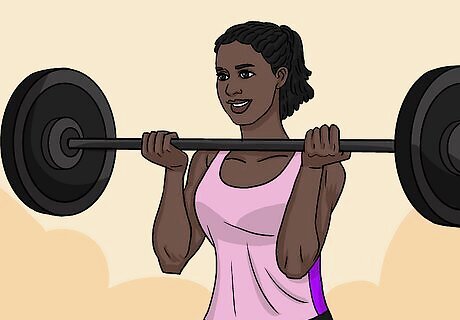
Physical activity will raise your spirits. It’ll also give you some energy! If you’re concerned about being physically weak, regularly working out can help you build some strength, but it’s also a fantastic mood lifter. Physical activity can help reduce stress, allow you to sleep better, and help you feel energized and positive. Try out all sorts of activities to find what suits you best! Developing a talent or skill is another way to boost your self-esteem. Consider trying your hand at a sport or activity you’ve never tried or want to get better at, like water polo, archery, or dodgeball. But you don’t need to engage in a formal sport to fill your movement quota: you can get plenty of exercise by walking around your neighborhood, or by having an impromptu dance party in your living room!
Get plenty of sleep.
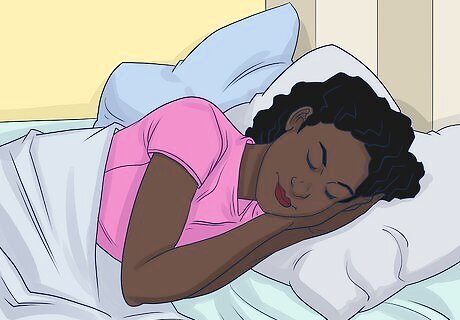
A good night’s rest can help you feel refreshed and happier. Studies show a lack of sleep is connected to depression and feelings of low self-esteem. If you’re struggling to feel positive about yourself, try to get a solid 8 hours’ REM time: it’ll work wonders on your mental health. Sleeping can also give you a much-needed reset: at the end of a troubling day, closing your eyes on the world for a few hours can help you see everything afresh.
Eat nourishing food.
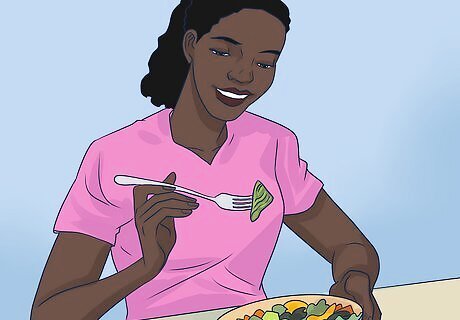
Your diet can help boost your confidence and happiness. We won’t say “you are what you eat,” but your diet can have a significant effect on your mental health, with processed foods and sugars often leading to higher rates of depression and low self-esteem. Try to cultivate a diet high in vegetables, fruits, unprocessed grains, fish, and seafood, and limit your meat, dairy, and sugar intake. And of course, be sure to get plenty of water every day. These guidelines are general and won’t work for everyone. Experiment with your eating habits to figure out what makes you feel best. Keep track of how certain foods make you feel over a span of a few weeks. You may find that what works best for some people doesn’t work for you, and vice versa. The average man needs about 15.5 cups (3.7 liters) of water every day, while the average woman needs about 11.5 cups (2.7 liters). But keep in mind that some of this water will come from other beverages and even from your food. A good rule of thumb is to drink when you feel thirsty.
Do extracurricular activities.

Getting involved in a new activity can help you feel more purposeful. Join a club, or commit to volunteering at a local organization. Committing to extracurricular activities can help you meet new people, develop new interests, and feel more connected to your community. It may also help to distract you from feeling bad about yourself. If you feel inferior because you’re not doing well in school, join a tutoring program and get a tutor to help you boost your marks and your self-esteem. Maybe you’ve got a green thumb, or you’ve always wanted to learn how to garden—consider joining your local community garden, or starting one yourself!
Open up to someone.
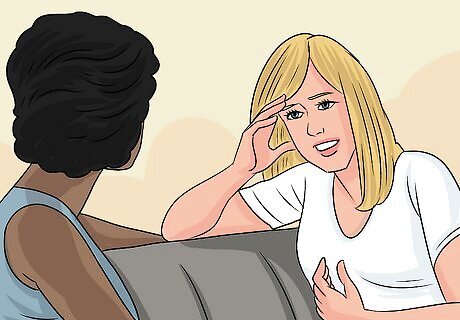
Turning to a loved one for support can help you feel better. Hanging out with friends can help distract you from your problems and remind you that you’re not alone, but sometimes, it helps to open up to loved ones about what you’re struggling with. Talk to a trusted friend or family member or romantic partner. Let them know you’re feeling low and inferior, and they’ll surely cheer you on—or just offer a listening ear and a hug. The person you turn to may be able to offer words of comfort or wisdom, but just getting your feelings off your chest might be enough to help you feel better.
Talk to a counselor.
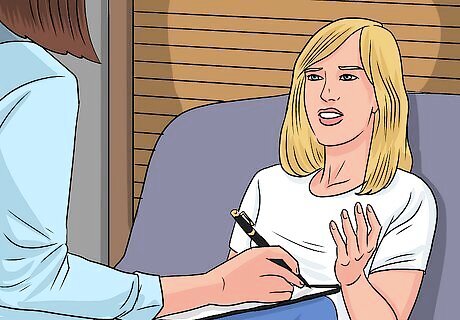
A trained therapist can help you work through your feelings. Lots of people struggle with feeling inferior, and there’s no shame in seeking professional help. Find a therapist you connect with. They’ll help you learn to look at life more optimistically and develop realistic and healthy goals for the future. You can see a therapist in person, but many therapists also see clients virtually via platforms like Better Help, if that works better for you.



















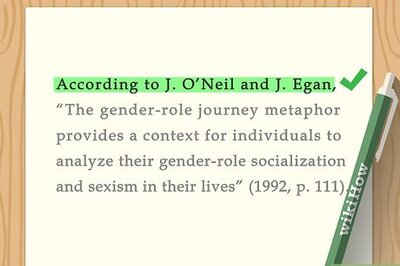
Comments
0 comment